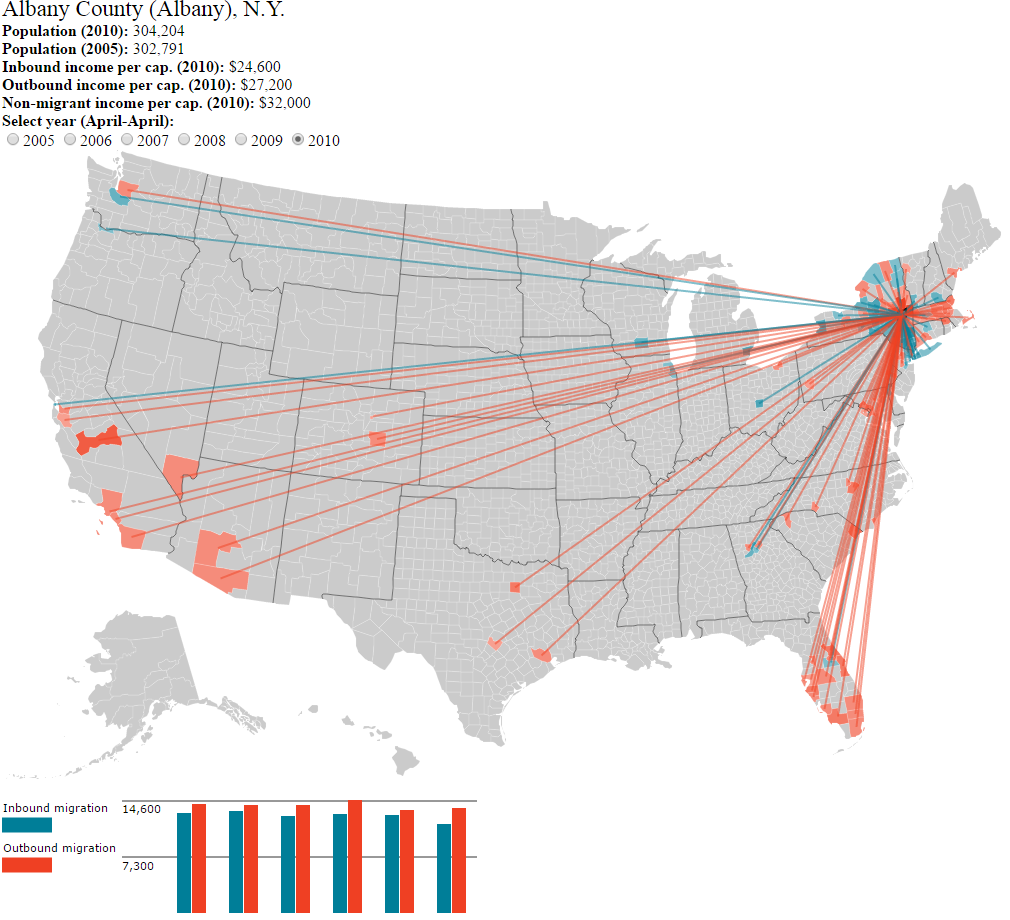I am looking for US county-to-county migration out flow data. That is, for every county in the United States (say, 1001 Autanga), the data would contain the absolute or relative number of people who migrated to other counties (say, 1002, 1003, ...) in that period.
I was able to find such data for the period from 1995 to 2000 (see here) as well as for the periods between 2000 and 2014 (see here) through the U.S. Census Bureau. Now I am looking for similar data for earlier periods throughout the 20th century. Say, for example for the periods 1920-25, 1950-55, 1970-75.
Any suggestions are much appreciated.
In absence of county data, I would also appreciate state-to-state migration for the same period.



